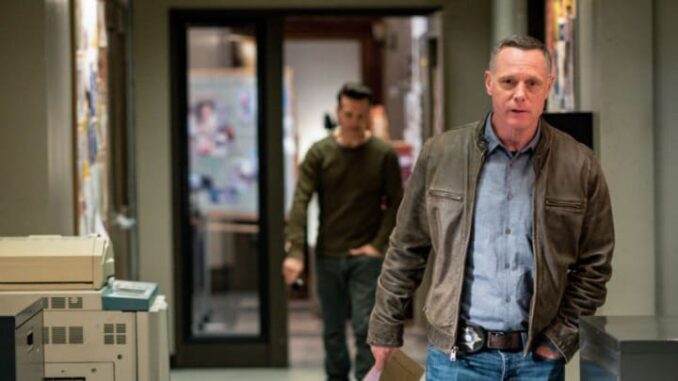
The Seamless Stitch: Procedural Synergy in Law & Order: SVU and Chicago PD Crossovers
The allure of the procedural crime drama lies in its promise of order wrested from chaos, of meticulous investigation culminating in justice served. When two such powerhouses like Law & Order: Special Victims Unit and Chicago PD collide, the potential for dramatic synergy is immense. Their crossovers, more than just marketing stunts, showcase a fascinating blend of investigative approaches, legal philosophies, and character dynamics, highlighting a procedural harmony that elevates both franchises.
The most palpable synergy lies in their shared commitment to procedural thoroughness. Both shows are renowned for their detailed portrayal of the investigative process. SVU, focused on the complexities of sex crimes, meticulously documents evidence collection, victim advocacy, and the nuances of legal proceedings. Chicago PD, steeped in the grit of street-level crime, emphasizes surveillance, informant management, and the ethical dilemmas inherent in policing a city riddled with corruption. When these two forces combine, the resulting investigation is a masterclass in procedural detail. The SVU team, with their trauma-informed interviewing techniques and expertise in forensic psychology, often provides a crucial lens through which to understand the motivations and vulnerabilities of victims and perpetrators encountered by the Chicago PD. In turn, the Chicago PD's street smarts and ability to navigate the city's underbelly can provide SVU with vital leads and actionable intelligence. This reciprocal relationship creates a narrative tapestry richer and more believable than either show could weave alone.
The legal frameworks within which each team operates also contribute to the synergy. SVU, firmly rooted in the New York State legal system, emphasizes due process and the rights of the accused, even amidst the emotional weight of sexual assault cases. Chicago PD, while adhering to legal protocols, often bends the rules in pursuit of justice, reflecting a more pragmatic and at times morally ambiguous approach to law enforcement. These contrasting approaches, when juxtaposed in a crossover, force a compelling examination of the ethical boundaries of law enforcement. Detectives from SVU, like Olivia Benson, often challenge the more aggressive tactics of Chicago PD's Hank Voight, leading to tense confrontations and a deeper exploration of the complexities of achieving justice in a flawed system. This friction, rather than disrupting the narrative, elevates it, forcing viewers to confront the multifaceted nature of law and order and the trade-offs often involved.
Furthermore, the character interactions within these crossovers highlight the inherent synergy in their professional philosophies. While personalities and styles may differ, both teams share a deep-seated dedication to protecting the innocent and bringing criminals to justice. The mentorship between Benson and the younger detectives of Chicago PD is a particularly poignant example. Benson, a survivor herself, embodies empathy and unwavering commitment to victims, qualities that can temper the more hardened sensibilities of Chicago PD officers. Conversely, Voight's unwavering loyalty to his team and his relentless pursuit of justice can provide a valuable perspective for the often-burdened detectives of SVU. These character dynamics, built upon mutual respect and a shared dedication to public safety, reinforce the idea that even with differing approaches, the fundamental goals of law enforcement remain aligned.
However, the crossover synergy isn't without its challenges. The tonal differences between the shows can sometimes create a jarring experience. SVU often delves into the psychological trauma of its victims, creating a deeply emotional and often disturbing narrative. Chicago PD, while exploring the human cost of crime, tends to be more action-oriented and focused on the cat-and-mouse game between law enforcement and criminals. Balancing these differing tones requires skillful writing and direction, ensuring that the crossover feels cohesive and avoids trivializing the serious issues addressed in each show.
In conclusion, the Law & Order: SVU and Chicago PD crossovers are more than just a ratings grab; they are a testament to the potential for procedural synergy. By blending their meticulous investigative approaches, contrasting legal frameworks, and compelling character dynamics, these crossovers create a richer and more nuanced exploration of the complex world of law enforcement. They remind us that while the path to justice may be fraught with ethical dilemmas and procedural challenges, the shared dedication to upholding the law and protecting the innocent remains the ultimate driving force behind these compelling dramas. The seamless stitch between these two franchises highlights the power of collaboration and the enduring appeal of a well-told crime story that resonates with viewers on both a procedural and emotional level.
